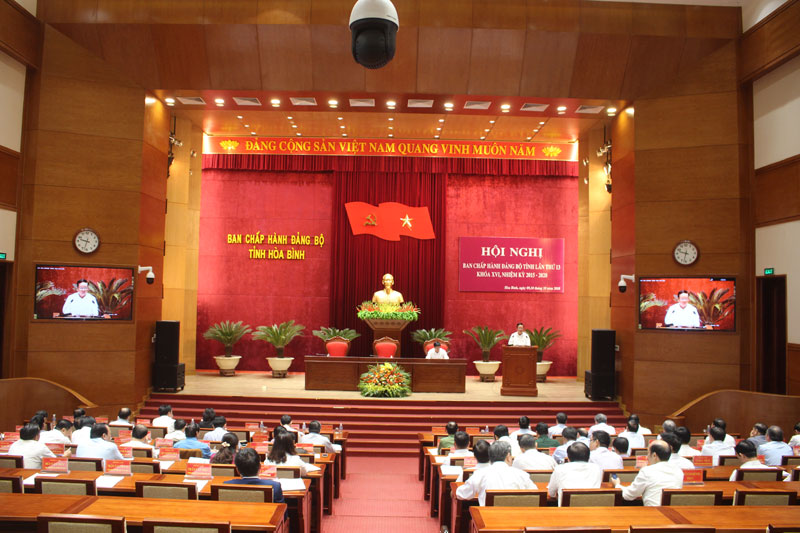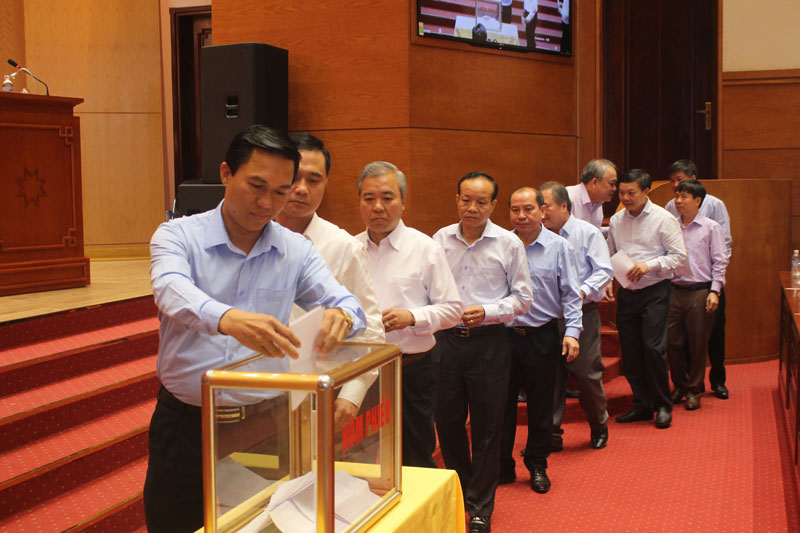



A view of
the closing session of the 13th meeting of the provincial Party Committee.
Through group and plenary discussions, officials
shared the view that in the first nine months of 2018 and the first half of the
tenure, during which the resolution of the 16th congress of the provincial
Party organisation was implemented, there remained numerous difficulties and
challenges apart from certain advantages.
However, the provincial Party Committee has
adhered to the Party Central Committee’s directions to uphold solidarity and
reform mindset and leadership methods. They have taken drastic actions to
address shortcomings, actively forecast and analysed issues and areas with
latent problems, and dealt with problems arising in a timely, flexible and
effective manner.
Highlighting fair economic growth, participants
said from 2016 to June 30, 2018, gross regional domestic product (GRDP) of Hoa
Binh grew by 8.6 percent while state budget revenue increased 11 percent
annually on average. Notably, the industry-construction sector expanded by
12.48 percent year on year, and total social investment capital approximated
12.75 trillion VND each year.
Between January and September this year, the
province’s GRDP rose by some 8.41 percent, budget revenue surpassed 2.25
trillion VND, and socio-economic infrastructure was upgraded.
Sixty or 31 percent of total communes have been
recognised as new-style rural areas. Policies and benefits for national
contributors and disadvantaged people have been carried out. Meanwhile, Hoa
Binh has continued to promote vocational training and job provision for local
residents, helping improve labour productivity and shift the job structure in a
positive fashion.
Hoa Binh has obtained encouraging outcomes in
natural resources management, environmental protection, disaster prevention and
control, climate change response, scientific and technological development, and
entrepreneurial and innovation movement. It has also successfully reinforced defence-security,
ensured social order and safety, and stepped up external and international
integration activities.

Secretary
of the provincial Party Committee Bui Van Tinh delivers the closing speech at
the meeting.
In his closing speech, Bui Van Tinh – member of
the Party Central Committee and Secretary of the provincial Party Committee –
asked each member of the Hoa Binh Party Committee to better fulfill their role
and responsibility and join local Party committees and administrations to boost
the implementation of the conclusions made at the 13th meeting, thus helping to
achieve the socio-economic development targets for the fourth quarter and the
whole 2018, as well as the targets and tasks set in the resolution of the
provincial Party organisation’s 16th congress.

Members of
the provincial Party Committee cast ballots to elect additional members to the
committee.
Also at the event, the provincial Party
Committee cast ballots to add new members to the committee. The candidates were
head of the provincial People’s Procuracy Ho Duc Anh and Secretary of the
provincial Committee of the Ho Chi Minh Communist Youth Union Hoang Xuan
Giao./.